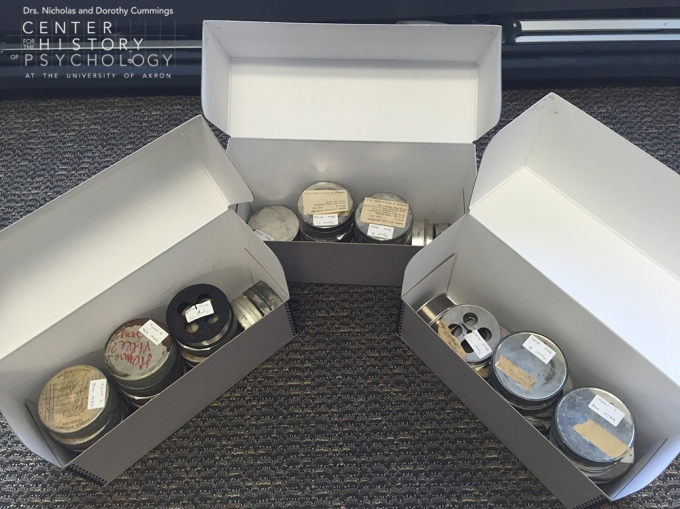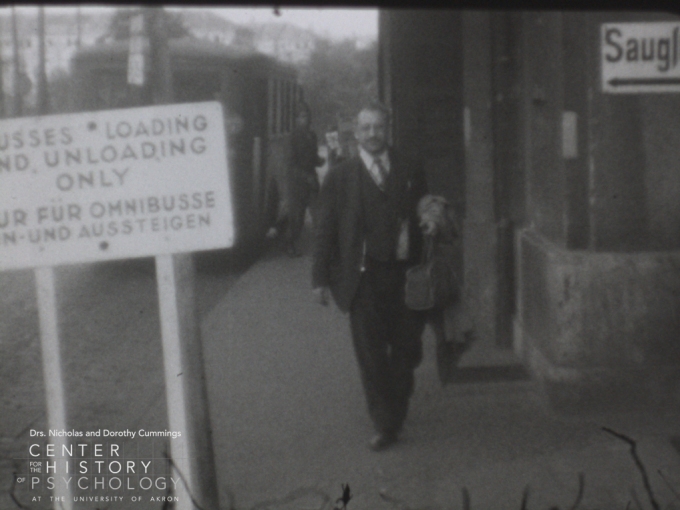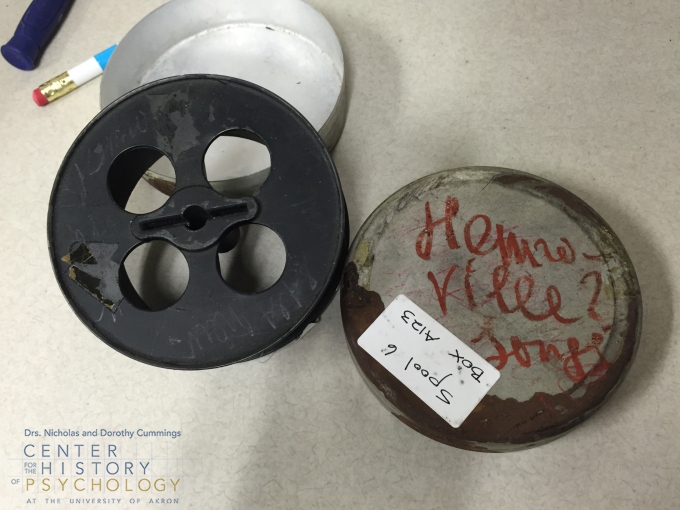In my job as the main media digitization person here at the Cummings Center, I have the opportunity to hear and see things that sometimes have not been seen or heard in decades or longer. This is one of my favorite aspects of the job – outside of being able to actively do a service for the study of history – and sometimes we find things that we did not know we had, or even existed.
My most recent project involved digitizing audio recordings from wire spools. On these spools, Dr. David Pablo Boder recorded fascinating things, from interviews with people displaced by the 1951 Kansas City Flood to speeches and radio programs.
 The three boxes of spools in the AHAP collection
The three boxes of spools in the AHAP collection
Boder’s most famous work was done in 1946 when he traveled across Germany, Italy, France, and Switzerland and collected interviews with displaced persons--many of them Holocaust survivors--in the aftermath of World War II. Most of the recordings were uncovered in the late 1990s between the Library of Congress and the Illinois Institute of Technology, spurring much interest in Boder's work.
 From a 16mm film of Boder in Germany
From a 16mm film of Boder in Germany
There was one wire spool that was never found, being referenced in his work but not found in the various Boder collections. This spool was of Jewish songs from a displaced persons camp in Henonville, France.
As I went through the three boxes of spools that we have at the archives I began to take stock of what we knew we had on spools versus what we had no idea about. Among these “confused” wire spools was the one below.

The spool above had been erroneously entered into the finding aid as “Heroville Songs” when the collection was originally processed in the 1960s. It did not take me long to realize that the tin says “Henonville? Songs.” But this was no guarantee that this was the content on the spool. Even the tin itself seemed a bit unsure about its own content.
It took me a few days to get comfortable enough with the medium to put the Henonville Songs on to digitize – these are very fragile and I did not want to risk destroying history – but when I did I was blown away.
These are the missing songs Boder recorded from those survivors, recorded more than 60 years ago. The feeling of knowing what I had found and the understanding that I was listening to something few before me had heard was a very different and personal thing for me. It felt like I was helping in some way to bring these voices to the present, voices that had become somewhat lost to the historical record.
The discovery of this single canister holding a lost recording means that these songs can be heard again, they can be studied, and they can inform us in a new way about the experiences, the joys, and the frustrations of these displaced persons.
Below is a link to the CCHP blog that contains several samples from the Henonville Songs spool. Please give them a listen, they’ve been waiting a long time.
https://centerhistorypsychology.wordpress.com/2016/09/02/dr-boder-and-the-missing-songs/
https://centerhistorypsychology.wordpress.com/2016/09/02/dr-boder-and-the-missing-songs/
[Note: If you're interested in hearing or using Boder's work for research, please contact us at ahap@uakron.edu.]